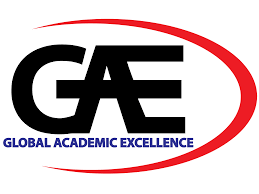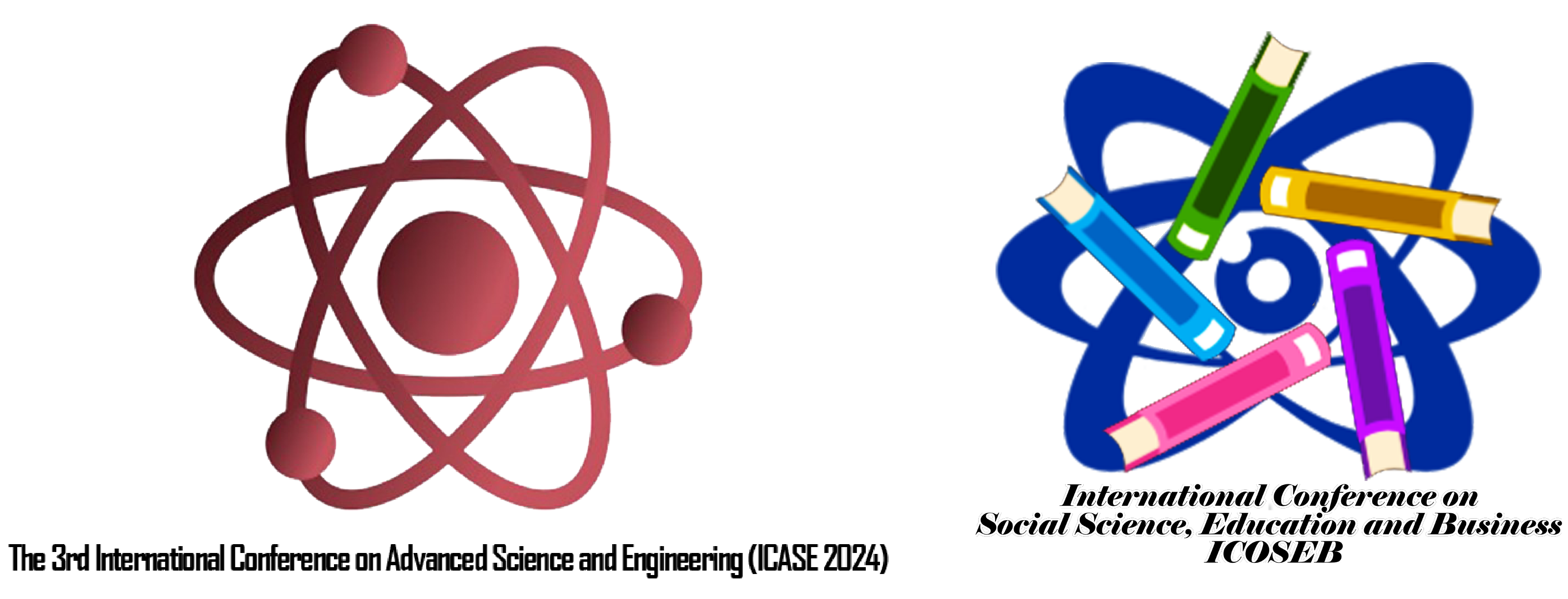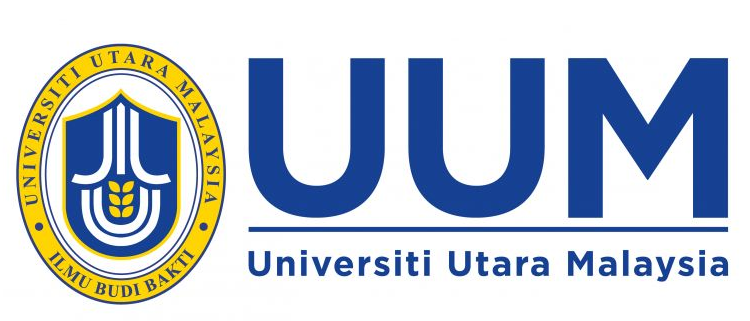
The 3rd International Conference on Advanced Science and Engineering (ICASE 2024)
&
The 3rd International Conference on Social Science, Education and Business (ICOSEB 2024)
(HYBRID CONFERENCE)
16 - 17 November 2024
Langkawi, Malaysia
Background
The 3rd International Conference on Advanced Science and Engineering (ICASE 2024) & The 3rd International Conference on Social Science, Education and Business (ICOSEB 2024) organised by Iman Excellence Center and Persatuan Alumni Universiti Malaysia Perlis in collaboration with Kolej Universiti Tati (TATIUC), Universiti Utara Malaysia (UUM), Universiti Tun Hussein Onn Malaysia (UTHM), Semarak Ilmu Publishing, Maths Proofread and Global Academic Excellence. It will be held on 16th-17th November 2024 in Langkawi, Malaysia. This conference provides lots of networking opportunities to scholars, professors and practitioners for corporate and development sectors. The scope of this conference is broad and covers many aspects of international technology perspectives. This conference aims to provide scholarly platform to participants to share their valuable knowledge and current information with others. This platform covers all tracks of technology and engineering filed such as computing, information science, electrical and electronic, mechanical and mechatronic, civil and environment, chemistry, computer science and etc
HYBRID CONFERENCE MODE
In order to provide participants more flexibility, we offer the option to attend in-person onsite or virtual/online via our dedicated conference virtual platform. For participants who will be joining us onsite, the registration fee is inclusive of Scopus Journal Publication (researcher/presenter), certificate, tea breaks, 1 lunch, conference kits, mineral water and mints, paper and pencil. For virtual participants, the registration fee is inclusive of Scopus Journal Publication (researcher/presenter) and e-certificate.
1) ONSITE PRESENTATION
Presenters are required to attend in-person onsite and make 10-15 minutes presentations (including Q & A).
2) VIRTUAL PRESENTATION
i. Live Presentation: Presenters are required to attend in-person online and make 10-12 minutes presentations (including Q & A)
ii. Video Recording: Presenters are required to record video within 7�10 minute presentations. On conference days, presenters are not required to be on standby. No video presentation will be play and no Q&A session. We only use video recording for documentation and journal purposes.
KEYNOTE SPEAKER
Prof. Ir. Ts. Dr. Wan Khairunizam Wan Ahmad
Universiti Malaysia Perlis
BRIEF BIOGRAPHY:
Dr. Wan Khairunizam received his B. Eng. degree in Electrical & Electronic Engineering from Yamaguchi University and Ph.D. in Intelligent Mechanical System Engineering from Kagawa University, Japan in 1999 and 2009 respectively. He is currently an Associate Professor of Mechatronic at School of Mechatronic Engineering, University Malaysia Perlis (UniMAP), Malaysia. He has 20 years experiences in research and teaching at the university and technical institutional levels and published more than 200 academic publication in international journals and international conference proceedings. His specialties are in Human-Computer Interaction, Intelligent Transportation System (ITS), Artificial Intelligence (AI) and Robotics.
Enrichment of Human-Machine Interaction: A Brain-Computer Interface (BCI)
ABSTRACT:
In human-to-human communication, human is can communicate with each other not only using verbal medias but also nonverbal medias such as gestures, speech, emotivity and tactility. Through the combination of verbal and nonverbal media, human smoothly communicating with each other by expressing their emotion and intension. Therefore, in the human machine communication, machines must be able to understand the verbal and nonverbal components to communicate with humans. Recently, the field of study is becoming attractive research and one of them is called Brain-Computer Interaction (BCI). For achieving the goal, the computer should be able to understand human emotion and intension through brain signals. The use of human emotion and intension produce an attractive alternative to be used as a medium for Human-Machine Interaction and is receiving more and more attentions in the recent years.
The 3rd International Conference on Advanced Science and Engineering (ICASE 2024)
Scope (but not limited to):
Thermal Science and Fluid
• Heat exchangers and heat transfer enhancement techniques
• Boiling, condensation, and phase-change heat transfer
• Thermal management of electronic devices and systems
• Fundamentals of fluid mechanics
• Turbulence modeling and simulations
• Computational fluid dynamics (CFD)
• Flow control and optimization techniques
• Multiphase flows and fluid-structure interactions
• Thermophysical properties of materials
• Thermodynamic analysis of energy systems and processes
• Refrigeration, air conditioning, and heat pump systems
• Combustion processes and combustion diagnostics
• Internal combustion engines and gas turbines
• Energy storage and conversion technologies
• Energy efficiency and sustainable development
• Atmospheric and oceanic flows
• Pollutant dispersion and environmental impact assessment
• Fluid mechanics in environmental engineering applications
• Climate modeling and environmental sustainability
• thermal science and fluid dynamics
• flow visualization, temperature, and pressure
• Instrumentation and sensors for heat transfer and fluid flow applications
• Uncertainty analysis and validation of numerical simulations
Micro and Nano Engineering
• Synthesis and fabrication of nanomaterials
• Nanofabrication techniques
• Characterization of nanomaterials
• Nanostructured surfaces and interfaces
• Nanostructured coatings and thin films
• Microfabrication processes and techniques
• Microelectromechanical systems (MEMS) and microsystems
• Microfluidics and lab-on-a-chip technologies
• Microscale heat transfer and thermal management
• Fundamental properties of nanomaterials
• Nanoscale electronics and photonics
• Nanomagnetism and spintronics
• Nanobiotechnology and nanomedicine
• Nanoscale characterization techniques
• Nanoelectronics and nanophotonics devices
• Nanomaterials for energy conversion and storage
• Nanomaterials for environmental remediation and sensing
• Biomedical applications of nanotechnology
• Nanomaterials for consumer products and industrial applications
• Computational methods for simulating nanoscale phenomena
• Molecular dynamics simulations of nanomaterials and nanostructures
• Quantum mechanical calculations for nanoscale systems
• Multiscale modeling approaches bridging micro and nano scales
• Predictive modeling for the design and optimization of nanodevices
Mechanical and Materials Engineering
• Fracture Mechanics and Fatigue
• Machinery Dynamics
• Concurrent Engineering
• Finite element analysis
• Noise and Vibration analysis
• Analytical and computational modelling
• Structural mechanics
• Behaviour and application of advanced materials
• Impact mechanics and thermodynamics
• Robotics Structures and Applications
• Robot sensors and actuators
Electrical and Electronics Engineering
• Intelligent Systems and Approach
• Motor drives and motion control
• Analysis and design of electrical machines
• Generation Systems
• Maintenance and Operation
• Distribution System Planning and Reliability
• Flexible AC Transmission Systems
• Micro-electromechanical systems (MEMS)
• Power System & Energy Engineering
• Power System Protection, Operation and Control
• Transmission & Distribution System and Apparatus
• Power System Stability
• Fuzzy and Neural Control
• Mechatronics
• Manufacturing Control Systems and Applications
• Process Control Systems
• Robotics and Automation
• Soft switching converters
• Hard-switching and soft-switching static converters
• Multilevel converters
Civil and Environmental Engineering
• Civil and Environmental Engineering
• Analysis of Semi-rigid Connections
• Applied Computer Vision for Civil and Environmental Engineering
• Augmented and Virtual Reality
• Buckling and Stability
• Building Design, Construction, and Operation
• Civil Engineering, Management and Surveying
• Computer Controlled Site Instrumentation
• Construction Automation and Robotics
• Construction Engineering and Management
• Dam Engineering
• Disaster Preparedness, Response and Recovery
• Distributed Computing in Engineering
Chemical Engineering and Biotechnology
• Food / Pharmaceutical engineering and manufacturing
• Biotechnology / Bioprocess
• Enzyme technology / Industrial Biochemistry
• Petrochemical Processing
• Separation and Purification Processes
• Related chemical and Biochemical engineering issues
• Catalytic Materials & Mechanisms
• Catalysis for Chemical Synthesis
• Catalysis and Energy
• Petrochemistry
• Catalysis in oil and gas
• Nanocatalysis
• Material Sciences
• Electrocatalysis
• Environmental Catalysis
PAPER PREPARATION:
Please download the Word template for extensive guidelines on formatting your paper. As a summary, please ensure the following:
• The number of pages is between 10 - 15 pages (including references).
• The manuscript must be written in good English or Malay
• International collaboration @ authorship is encouraged.
• Paper in word format.
• The paper includes the author name and affiliation (full address including country).
• There are no page numbers, or headers and footers, within the paper.
• All pages are portrait (landscape pages should be rotated).
• Figures are placed within the text, not collected at the end of the document.
• A thorough proofread is conducted to check the standard of English and ensure wording is clear and concise.
PUBLICATION:
All accepted, paid and presented papers from ICASE 2024 articles will be submitted in one of the following journals, depending on the scope of the papers. ALL journals are indexed in SCOPUS. For publication, it will require a final review process for quality checking by the publisher's editorial team.
1. Journal of Advanced Research in Fluid Mechanics and Thermal Sciences
2. CFD LETTER
3. Journal of Advanced Research in Applied Mechanics
4. Journal of Advanced Research in Numerical Heat Transfer
5. Journal of Advanced Research in Micro and Nano Engineering
*** To remain a high-quality SCOPUS journal, all papers will go through a second review by the publisher's editorial team. If the article is of low quality and rejected by the journal publisher, the organiser will refund your registration fee. ***
3rd International Conference on Social Science, Education and Business (ICOSEB 2024)
Topics of the conference (but are not limited to):
Social Science:
• Study of human societies, behaviors, and interactions
• Psychology, sociology, anthropology, political science, economics, etc.
• Social dynamics, cultural studies, globalization, urban studies
• Social psychology, social policy, social justice
• Research methodologies in the social sciences
• Analysis of human behavior, societies, and cultures
• Exploration of individual and collective psychology
• Study of societal structures and institutions
• Examination of political systems and dynamics
• Economic theories, trends, and policies
• Cross-cultural communication and interactions
• Globalization's impact on societies and economies
• Research into demographic shifts and population trends
• Ethnographic studies of communities and cultures
• Social justice, inequality, and human rights investigations
Education:
• Teaching, learning, curriculum development
• Educational psychology, assessment and evaluation
• Teacher training, educational leadership
• Online and distance learning, educational technology
• Inclusive education, innovative teaching methods
• Educational policy, trends in education
• Analysis of human behavior, societies, and cultures
• Exploration of individual and collective psychology
• Study of societal structures and institutions
• Examination of political systems and dynamics
• Economic theories, trends, and policies
• Cross-cultural communication and interactions
• Globalization's impact on societies and economies
• Research into demographic shifts and population trends
• Ethnographic studies of communities and cultures
• Social justice, inequality, and human rights investigations
Business:
• Commerce, management, entrepreneurship
• Marketing, finance, human resources
• Supply chain management, organizational behavior
• Business ethics, corporate social responsibility
• Strategic management, industry trends
• Technology's impact on business, case studies
• Analysis of human behavior, societies, and cultures
• Exploration of individual and collective psychology
• Study of societal structures and institutions
• Examination of political systems and dynamics
• Economic theories, trends, and policies
• Cross-cultural communication and interactions
• Globalization's impact on societies and economies
• Research into demographic shifts and population trends
• Ethnographic studies of communities and cultures
• Social justice, inequality, and human rights investigations
ICOSEB 2024 Publication:
The ICOSEB 2024 articles will be published in one of the following journals, depending on the scope of the papers. The journals are indexed in MyJurnal, MYCITE. All accepted, paid and presented papers will be submitted to the publisher. For publication, it will require a final review by the publisher's editorial team.
2. Journal of Tourism, Hospitality and Environment Management (JTHEM) elSSN: 0128-178X
3. Journal of Information System and Technology Management (JISTM) elSSN: 0128-1666
4. International Journal of Education, Psychology and Counseling (IJEPC) elSSN: 0128-164X
5. International Journal of Entrepreneurship and Management Practices (IJEMP) elSSN: 2600
6. International Journal of Modern Education (IJMOE) eISSN: 2637-0905
7. Advanced International Journal of Business, Entrepreneurship and SMEs (AIJBES) eISSN: 2682-8545
8. International Journal of Innovation and Industrial Revolution (IJIREV) eISSN: 2637-0972
9. Labuan Bulletin of International Business & Finance (LBIBF) - E-ISSN: 2600-7894
Organizer
Co-Organiser



